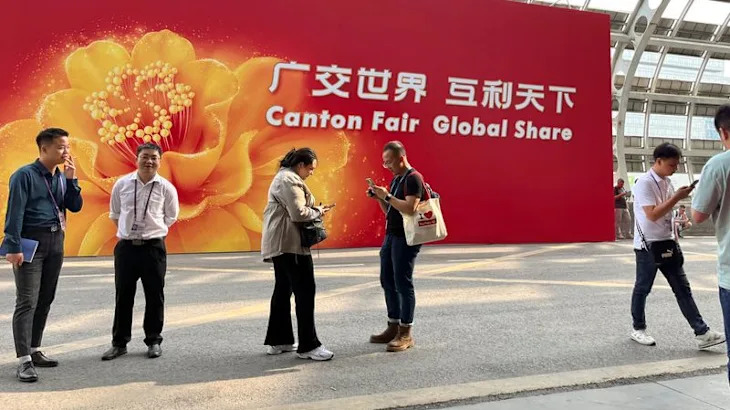
At China's largest trade fair, exporters say US markets are 'frozen'
By Ellen Zhang and Kevin Krolicki
GUANGZHOU, China (Reuters) - Candice Li says that after Washington raised tariffs on Chinese goods by 145%, U.S. orders for the medical devices her firm is making have vanished.
"It's a matter of life and death because 60-70% of our business is with American clients," said Li, marketing manager of Conmo Electronic Co. "Goods cannot be exported and money cannot be collected. This is very severe."
Li was at her firm's booth at the Canton Fair, China's biggest trade expo held twice-a-year in the southern city of Guangzhou, where more than 30,000 exhibitors showcase their products over an area larger than 200 football fields.
This was the first such fair China has held since U.S. President Donald Trump slapped tariffs in excess of 100% on China and of at least 10% on the rest of the world earlier this month.
Most exporters Reuters spoke with said U.S. orders, which for firms like Li's are vital, have either been delayed or stopped coming - a bad sign for the world's second-largest economy, whose growth last year relied heavily on running a trillion-dollar trade surplus.
No other country comes close to matching China's sales of more than $400 billion in goods to the U.S. each year.
And while Trump's tariffs on the rest of the world are much lower, they are likely to curb global demand in coming months - and implicitly, the appetite for Chinese goods in other countries.
Kobe Huang, sales representative at Shenzhen Landun Environmental Technology, which makes water filters and smart toilets, says that for now, European sales are up, but the U.S. market is "frozen."
U.S. customers and distributors haven't cancelled orders, he said. "They have asked us to hold on. We are holding on."
U.S. importer Levy Spence, president of Air Esscentials, was browsing for the scented products on offer at the fair, but had no particular plan for purchases, because "every day I wake up, I feel like it's a different tariff."
"Prices are going to go up," he said. "Even for the stuff that we source in the United States, a lot of the raw materials are sourced from around the world. It's not just the China tariffs."
Organisers said about 170,000 overseas buyers had registered as of April 8 for this month's fair, compared with a record final attendance of 253,000 at the previous edition, which concluded in November. About 10% of those were from the U.S. and Europe, down from roughly 20% last time.
The fair takes place April 15-May 5. Deals at the previous edition totalled $25 billion, local media said.